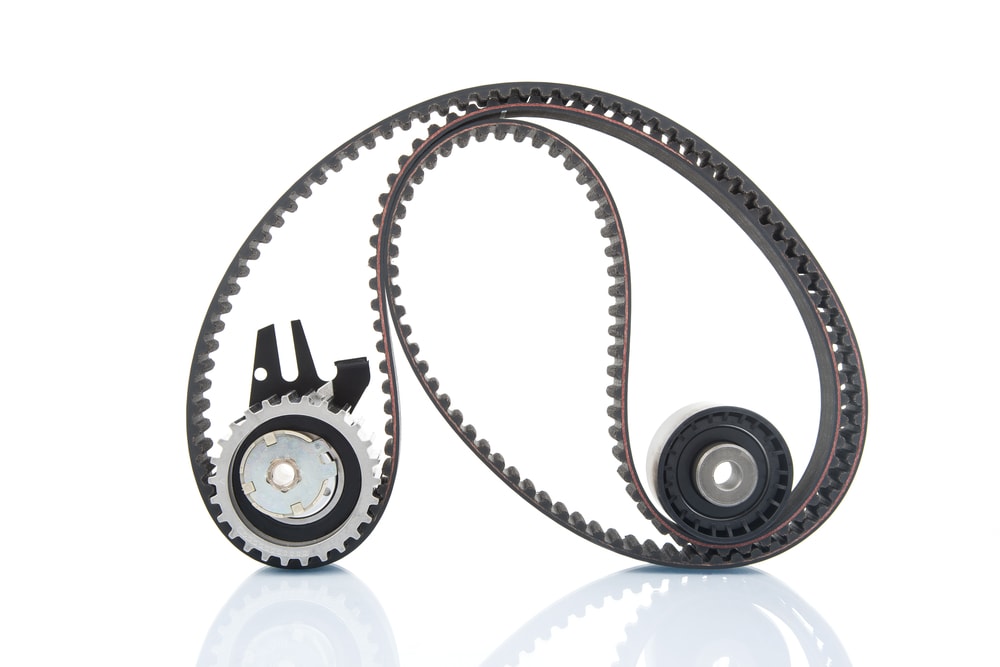

You car’s timing belt is a big part of what makes your car run smoothly. This belt is responsible for controlling the camshafts that are in the engine. It closes and opens the valves at the exact right moment, and this is what provides the smoothness in your drive.
Unfortunately when this timing belt "goes" it's a pretty big deal. What happens is that this belt can suddenly break/snap without any warning whatsoever. Once this happens the valves will be stuck in the open position, which means the pistons are free to hit them. This can end up as a very costly repair thanks to massive amounts of damage to your engine. For this reason most mechanics recommend that you change your timing belt sometime between the 60,000 mile and 90,000 mile mark.
It is generally recommended to get a new water pump when you change the timing belt. The two parts have similar longevity, so it's the kind of replacement that makes sense to do at the same time.
For best results, consider these helpful tips when choosing a timing belt for your vehicle:
Check your owners manual: Consult with your owner's manual so that you know exactly what you're looking for when it comes to the timing belt.
Budget and quality: There are a number of brands available on the market with a wide range in price. Some tend to hold up a bit longer/better than others, and may be better in certain vehicles.
Keep track of your mileage: Once you purchase the timing belt start keeping track of your mileage right away. This is so that you have an idea when it’s time for replacement again.
YourMechanic supplies top-quality timing belts to our certified mobile technicians. We can also install a timing belt that you've purchased. Click here to get a quote and more information on timing belt replacement.



